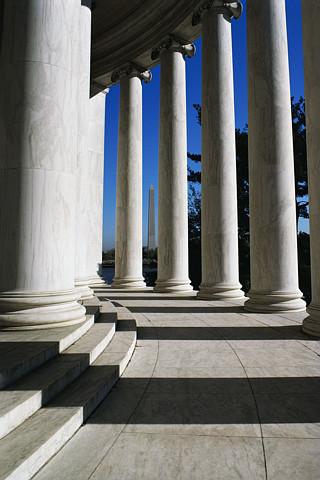Sign up for our Email Newsletter
Immigration Library
We provide the professional
and comprehensive on-line immigration law library...
Our Services
We are dedicated to provide
all aspects of US immigration services and counseling...
Free Seminars
We are committed to educating those interested in learning U.S immigration laws ...
Read MoreRecent USCIS Developments on NIW





Introduction
Due to many factors including the weakened job market and slow economy, USCIS has responded by tightening nearly all employment-based visa categories. For example, with the heightened scrutiny that the USCIS has placed on H-1B applications, immigration lawyers report Requests for Additional Evidence (RFEs) for even routine cases. This USCIS crackdown has spilled over to the NIW category as well. Many attorneys and law firms are no longer having the same type of success with these kinds of cases; what often worked in the past is not as effective today. USCIS is now requiring NIW applicants to qualify under a stricter and more demanding standard. However, Z&A has kept abreast of USCIS procedures and we have modified our practice accordingly to meet these new standards.
Discussion
Filing a successful NIW application is more difficult nowadays. We have broken down our observations of current USCIS adjudication practices regarding NIW petitions below.
- Subjective Standard versus Objective Standard
While in the past subjective criteria may have exerted a major influence on USCIS decision making in NIW petitions (e.g. testimonials in the form of recommendation letters), now objective criteria are more important from USCIS’s perspective. Carefully prepared and selected letters of recommendation, ideally from independent referees who know of the petitioner’s exceptional ability and achievements through their publications or work, are still important. But more important are objective criteria showing recognition of work in the field and influence on the field as a whole, discussed below.
- Standard Outlined by USCIS in Denial Notices and Requests for Evidence (RFEs)
We can learn about current USCIS standards from the language of RFEs and Denials. Even the best-prepared, strongest cases can get a RFE. USCIS often issues generic RFEs without identifying specific aspects of the case the Petitioner can readily rectify; these are time-consuming to respond to and may be a source of frustration for the petitioner. USCIS RFEs often consist of merely restating statutory language and saying the Petitioner has not met the burden of proof.
Current standard RFE language for NIWs states: “Please submit copies of any published articles by other researchers citing or otherwise recognizing your research and/or contributions. . . . It is not necessary to submit articles that are self-referencing; i.e. written by you or your collaborators.” The RFE adds, “Please submit documentary evidence to establish that you have a past record of specific prior achievement that justifies projections of future benefit to the national interest. You must establish, in some capacity, your ability to serve the national interest to a substantially greater extent than the majority of your peers. You must demonstrate, to some degree, your influence on your field of employment as a whole.”
Please note three things from this recent NIW RFE applicable to all NIW cases:
- The importance of independent citations and/or a large number of downloads: This, of course, can only be shown if one actually has some independent citations of one’s papers. If you do not have citations, you can show a download count of your papers or programs by other researchers. According to USCIS officers, many independent citations of an applicant’s papers or a large number of downloads of an applicant’s papers or programs prove the applicant’s work or achievement has a great impact on his/her field, and therefore serves US interests.
- The importance of serving the national interest to a substantially greater extent than the majority of your peers. This can be shown by strong letters of recommendation testifying about an applicant’s achievements above his/her professional peers by providing specific examples of his/her unmatched achievements; OR
- An applicant’s influence on field as a whole: This can be shown by citations or commercialization of patents, but can also be shown by use of one’s work by others, which will be brought out by the letters of recommendation. For example, a US Dept. of Agriculture Scientist can talk about how invaluable your research has been for USDA, and two professors who have never met you can talk about how your groundbreaking work influenced their published research, or an industry scientist at Monsanto can talk about your pioneering research techniques that Monsanto has adopted throughout California and Texas.
- Nebraska and Texas Service Centers
All NIW petitions are currently adjudicated at either the Nebraska or Texas USCIS Service Centers. Where a petition is filed is determined by the residence of the applicant; our firm prefers to file at the Texas Service Center since we have found their standards more flexible and thus better for applicants. If an applicant lives outside of the Texas Service Center’s jurisdiction (for example, applicants applying from abroad) we can still e-file the application, which then gets sent to the Texas Service Center from our experience. However, USCIS may transfer cases from one service center to another, including e-filed cases from Texas to Nebraska. Thus while strategy is involved from the attorney’s part, an objectively strong case will naturally have a better chance of approval than a weak case whichever service center the case is filed with.
The language in denial notices also illuminates USCIS standards and expectations. Of course, just like RFEs, denials can be arbitrary. One USCIS officer may deny a case that other officers would have granted. Nevertheless, in denials there are patterns. A NIW petition with 15 first-authored publications and 130 independent citations has a higher chance of approval than a NIW petition with 2 second-authored publications and 8 independent citations.
Here is relevant language from a denial notice of a case with 8 first-authored papers and 1 second-authored paper, but only 5 citations and letters that did not speak enough about actual past achievements: “It must be noted that, while the national interest waiver hinges on prospective national benefit, it clearly must be established that the alien’s past record justifies projections of future benefit to the national interest. The petitioner’s subjective assurance that the alien will, in the future, serve the national interest cannot suffice to establish prospective national benefit.”
In other words, the emphasis of a successful NIW petition must be on actual past achievements, rather than speculative future benefits. USCIS judges a person’s capacity to contribute to the national interest in the future based on past achievements, not speculative claims about future potential. Thus recommendation letters should focus on substantial accomplishments and influence on the field that have already occurred rather than future anticipated benefits. As the USCIS denial notice states, “The petitioner must demonstrate a past history of achievement with some degree of influence on the field as a whole.”
USCIS faults the recommendation letters for not providing “any examples of specific resources that they have adopted or expressed interest in adopting [petitioner’s] methodologies.” USCIS adds, “Although the petitioner’s research has helped in furthering current research projects, it has not been established this research has made a significant impact beyond the scope of a particular project.”
Regarding the application with 8 first-authored articles and 5 citations, USCIS notes, “The petitioner’s publication and citation history is not indicative of a significant influence within the field. . . . in order to establish eligibility, the petitioner must demonstrate that he already has a track record with some degree of influence on the field as a whole.”
In other words, a large number of independent citations is clearly helpful. In the absence of such evidence, alternative sources of influence must be found to be able to show some degree of influence on the field as a whole.
Conclusion
In summary, the USCIS tends to focus and request evidence for the NIW to be: 1) specific past achievements instead of a general and future outlook; 2) many independent citations; 3) a large number of downloads of papers or programs; 4) commercial utilizations of one’s patent or work; or 5) any objective and documented achievements that show one’s achievements are above one’s peers.
The USCIS shift is troubling. Not only does this lead to additional work that makes NIW petitions more time consuming and nerve-wracking for NIW applicants, but it also leads to greater denials. Therefore, it is more important than ever to find an experienced law firm with a strong background in filing NIWs to assist applicants in their NIW petition. Z&A, which has filed over 1,000 successful NIW applications, is attentive to changes in USCIS procedure and is quick to adapt to new USCIS standards in order to better serve our clients' needs.
For more information on National Interest Waiver, please click one of the following topics:




